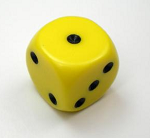|
Fights for Fame, Fights for Coin, Fights for the thrill.
|
|
|
|

|
| # ? Jun 7, 2024 14:57 |
|
CainsDescendant posted:Does anyone have any good drives for the Gladiator class? I've got a Dark Sun game going and I really want to have a Gladiator playbook but I can only find it with alignment options and I don't want it to be the odd playbook out. Here you go. I'm pretty sure that's the most up to date, but it's been years and I honestly don't remember. Also, that's the de-Dark Sun-ified version, so you might need to change the names of the race options or some of the gear.
|
|
|
|
I suppose this is a question that likely applies to all PbtA games, but regardless: If you're playing in real time (whether it's by discord or face-to-face or whatever), how do you keep in your mind the possibilities of GM Moves, or the complications that stem from a 7-9 Defy Danger roll (or hypothetically the other moves but I feel that Defy Danger's broadness leaves it more open to possibilities but also meaning it can be harder to come up with a satisfactory result on the spot)? Do you make any preparations as such? Also on a different note but still somewhat DW-related: How do you do dungeons in your games? How much do you leave to the players and how much prompting do you give them regarding the dungeoneering experience and the dungeon's layout/etc. etc.?
|
|
|
|
Is the basic Bard supposed to be able to target themselves with their magic songs?
|
|
|
|
Infinite Oregano posted:I suppose this is a question that likely applies to all PbtA games, but regardless: If you're playing in real time (whether it's by discord or face-to-face or whatever), how do you keep in your mind the possibilities of GM Moves, or the complications that stem from a 7-9 Defy Danger roll (or hypothetically the other moves but I feel that Defy Danger's broadness leaves it more open to possibilities but also meaning it can be harder to come up with a satisfactory result on the spot)? Do you make any preparations as such? But realistically speaking, this triaxiom (worse outcome, hard bargain, ugly choice) is the lens through which most of PbtA operates. Pretty much any time it's your turn to talk, this is what you're doing - you're describing a situation that's about to go bad or makes the current situation worse (reveal an unwelcome truth, capture someone, put someone in a spot, inflict harm as established), gives them what they want but makes them pay for it (make them buy, activate their stuff's downside, take away their stuff, trade harm for harm as established), or presents them with a difficult decision (tell them the consequences then ask). You control the throttle on this - i.e. how "hard" your move is - but the nature of what you say should be a logical consequence of what came before. Essentially, it's all about figuring out what the PC is trying to do, then thinking of ways that it could go wrong that make sense in the context of what's happening or being attempted. Like I said, I feel like that's a pretty vague answer, but it really is how the game functions. It also gets easier with practice.
|
|
|
|
Infinite Oregano posted:I suppose this is a question that likely applies to all PbtA games, but regardless: If you're playing in real time (whether it's by discord or face-to-face or whatever), how do you keep in your mind the possibilities of GM Moves, or the complications that stem from a 7-9 Defy Danger roll (or hypothetically the other moves but I feel that Defy Danger's broadness leaves it more open to possibilities but also meaning it can be harder to come up with a satisfactory result on the spot)? Do you make any preparations as such? As an extension to the above post, I also give myself maybe 10 seconds to think of something before I answer the players with the "obvious answer" More often than not I'll just go for what is obvious in the fiction, but that can be repetitive in some situations I'll try read down the whole list of GM moves really quickly and see if I can think of something particularly cool or interesting before doing the obvious I should point out though that usually the obvious is the best response Another exception is if I've got some encounter I've thought of before the session and, just like designing moves, I might have a small list of stuff I think might be cool if someone rolls a 6- or 7-8 during the encounter Really though, it's not that difficult. But it's easy to crutch on one response which can get boring like "take damage from the dragon" every single time someone fails, it just takes some thinking outside the DND box
|
|
|
|
Infinite Oregano posted:I suppose this is a question that likely applies to all PbtA games, but regardless: If you're playing in real time (whether it's by discord or face-to-face or whatever), how do you keep in your mind the possibilities of GM Moves, or the complications that stem from a 7-9 Defy Danger roll (or hypothetically the other moves but I feel that Defy Danger's broadness leaves it more open to possibilities but also meaning it can be harder to come up with a satisfactory result on the spot)? Do you make any preparations as such? Never ask people to make a move unless you have some idea what's going to happen to them on a 6-. What have you done for the dice that they should be so kind to you? Then, when they get a 7-9, if the consequences include being exposed to a threat or eating a lesser version of a threat, you have a threat ready to go.
|
|
|
|
If you donít know what can go wrong, just wait. Let them succeed and then when you want to later, make a hard move. If you let it hang in the air, other players will either take the spotlight for a while, or suggest bad things that will happen to them.
|
|
|
|
If I'm short on ideas, I'll often throw the question back to the players and ask them: "What went wrong?" You have to be ready to press them to a worse result if they try to get away with a response like "I didn't succeed and I have to try again" but otherwise it's a good way to bring them into the game and get them to expand upon the fiction.
|
|
|
|
You can try to have some 'things that can go wrong' set up ahead of time, and whenever the current fiction doesn't present a better choice you can just pull something off the list that makes sense. This is a good way to establish stuff like features of the dungeon, or advancing threats.
|
|
|
|
To avoid dealing with treasure amounts and such, I'm replacing money with Treasure, i.e. Apocalypse World's barter. My (PbP) players are sailing the Astral Sea of D&D lore, and I figure 1-Treasure lets them restock, 2-Treasure lets them restock and make minor repairs, 4-Treasure lets them restock and make major repairs, and Carouse spends 1 Treasure for every 100 gold it would have. Any problems with this, or the scaling?
|
|
|
|
LogicNinja posted:To avoid dealing with treasure amounts and such, I'm replacing money with Treasure, i.e. Apocalypse World's barter. My (PbP) players are sailing the Astral Sea of D&D lore, and I figure 1-Treasure lets them restock, 2-Treasure lets them restock and make minor repairs, 4-Treasure lets them restock and make major repairs, and Carouse spends 1 Treasure for every 100 gold it would have. Any problems with this, or the scaling? What are you doing about ranged weapon ammo, or cheaper healing items like bandages and poultices? 1-Treasure just lets everyone fill up to their load on that if they want to?
|
|
|
|
What are people's thoughts on Worlds of Adventure for DW? Based on their own words: "Worlds of Adventure People posted:Worlds of Adventure is an ongoing project looking to build on the strengths and themes of Dungeon World with a holistic, take-it-as-is ruleset that emphasises functionality and flexibility. The ruleset for Worlds of Adventure is meant to both supercede and take precedence over those of the original game. I like that it feels like a +1 or fork on DW, that is removing a lot more of the DnDisms. I still think DW is a solid starting point for getting off of DnD, and in many ways the things that make DW a poor PBTA hack make it great for babies first not DnD, but this could wind up being an excellent next step.
|
|
|
|
Glazius posted:What are you doing about ranged weapon ammo, or cheaper healing items like bandages and poultices? 1-Treasure just lets everyone fill up to their load on that if they want to? Yeah, basically-- 1-Treasure gets you everything (non-unique) you started with back. I'll need to work out how much treasure I hand out and what a good scale for individual supplies vs major ship repairs is. I also need to work out how much, e.g., hiring a healer while they're in port is (to get rid of debilities). Besides Volley and the GM "take stuff away from them" move, when does equipment really come up mechanically in a way would be interfered with by letting them resupply whenever they're in a port?
|
|
|
|
I'd like to start GM'ing a Dungeon World game sometime in the near future. I've GM'd all sorts of things for years and years, but find myself with less free time to prep sessions this year and DW looks amazing. I've gone through the source material a bunch and I think I've got the hang of it, but I still have a few blanks to fill in (haw haw). I think my main concern is hitting a good balance between making stuff up and asking the players to do it for me. A specific example, let's say they're in a dungeon for the first session adventure. They've cleared out a room and kick down a likely-looking door. What's in the next room? Who decides? "Wizard, what's behind the door?" "You enter a large room. Bard, what's in here?" "You enter a small, circular torture chamber. Thief, who's on the rack and who's swinging the whip?" "You enter a temple to the evil god Akeph (Cleric: "the worst one!") and five blemmysmen (Ranger: "those killed my family!") attack you with curved clubs (Barbarian: "I collect clubs, as we established earlier!"). Fighter, what do you do?" Of those, which looks most like Good Dungeon Worlding? Okay, so they clear out the dungeon and emerge victorious with the mayor's rescued prize cow or whatever. Now I'm supposed to make a Steading ("during a snack break"). I'll use cues from the players, like if they keep talking about presenting a gift to the Lord Cardinal it's probably not a complete shithole. Should I press them for more before going through the steading rules or am I basically creating a town from scratch like I would when I run any other RPG? Play wraps up and I start prepping fronts for next time. By now we've probably got enough meat for a few. What's so special about that cow? What's the Lord Cardinal's game? Does anyone other than the ranger give a poo poo about blemmysmen? But do I then think of something completely new and slot into the existing lore? The "White Gate" example in the book, for instance, did that (hypothetically) spring from a player saying "I was raised in the shadow of the White Gate" or is that the GM going "Here's a dope concept, White Gates, this is now the campaign"? Is it a case of "adventure fronts are from players, campaign fronts are from the GM"? As in, next session the players will want to continue doing what they were talking about last session, but then I show them hints of a larger narrative. Based on which way they go, I advance my campaign fronts and prep new adventure fronts for next time. Another thing: I've run into a sentiment online here and there which is basically: The GM only uses Moves. Whenever an interaction takes place between a player and the GM, if it's not covered by a player move it's GM move time. For instance: Fighter: "A flagon of your finest ale." Me [thinking]: That's going to cost him a coin... So that's... Use up their resources. Barkeep: "One coin please sir." Me [thinking]: Or, hang on, Opportunity and cost? Wordy Barkeep: "...yes, one coin for a flagon of ale." Me [thinking]: I guess that ended up being Tell them the requirements or consequences and ask, so... Weird Barkeep: "Uh, what say you to that offer, sir?" Like, normally there wouldn't be that mechanical step, I'd just say whatever sounds likely. I can see the advantage of this - I'm looking at the list of moves and suddenly I'm thinking "We don't serve your kind here" or "Ale? We've a special on elf wine, only five coins" instead. But every time? Should I really be striving for that? I've been thinking a lot about Dungeon World and I'm really excited about it, so apologies for the wall of text. I'm not worried, really, but a bit of input on any of the above would really help me adjust my expectations (and those of my players when I get that far).
|
|
|
|
Shanty posted:Another thing: I've run into a sentiment online here and there which is basically: The GM only uses Moves. Whenever an interaction takes place between a player and the GM, if it's not covered by a player move it's GM move time. For instance: I think you need to start by asking yourself what the point of this tavern scene is. Is this just between-dungeon celebration? Your move is just "Use up their resources" by taking a few coins for food and drink, then sitting back and letting them role-play. You don't have to make another move unless they do something that has everyone looking to you again, like a fight breaking out, a seduction attempt, etc. If it's time to bridge the last bit of plot into the next, maybe you Reveral an unwelcome truth, Show signs of an approaching threat, or Offer an opportunity. The key is that you don't have to do those things - you do it if play stops and people are looking at you to move it forward. Otherwise, remember that once of the GM principles is "be a fan of the characters." If they just want to hang out and celebrate and pick up the plot in the next scene, let them!
|
|
|
|
I don't wanna be a dick, but I think a good yardstick here is "If your PBTA solution is more fraught and complex than a more 'traditional' game would be, what the gently caress." A grognard DM would dutifully make sure the player deducted 1 silver piece from their character's moneys, then just let the scene play out. I'm...not sure what you have to do here.
|
|
|
|
Time for some complicated and maybe a bit unsatisfying answers!Shanty posted:Okay, so they clear out the dungeon and emerge victorious with the mayor's rescued prize cow or whatever. Now I'm supposed to make a Steading ("during a snack break"). I'll use cues from the players, like if they keep talking about presenting a gift to the Lord Cardinal it's probably not a complete shithole. Should I press them for more before going through the steading rules or am I basically creating a town from scratch like I would when I run any other RPG? The default stance here is to only make what you need for the narrative now. Often that's the best approach. It leaves you room to maneuver later and keeps things moving. Regarding player input, I would use it as a starting point and see if they have more to offer. Sometimes they won't, and that's fine. In that case it will be your role to fill in the gaps until you have what's needed for the scene. It's also totally appropriate to add in some cool things you're interested in, even if it remains off stage for a while. As a rule of thumb, though, when coming up with setting information you should really only add one "secret" like that before you come back for player input. On the other hand, there can be incredible value to fleshing out something in your game world in detail. It gives everyone a fallback set of established facts, a good foundation when they're having creative blocks and a guideline for later development of the setting. Taking a break to get into the nitty gritty with the players can have tremendous value there. Plus sometimes its useful to take a break from the usual play cycle and do some worldbuilding; it's a nice breather that will often leave players with new ideas and more energy when you get back to regular play. Judging when to do one or the other is an experience thing. I would say in this case go with the more skeletal approach. Look at the Steading rules and think about what the next narrative scene needs, and then see if the players have input on the elements you need for that. If they do, riff off those and build just what you need for now. If not, then fill in yourself only until you have what you need. Shanty posted:Play wraps up and I start prepping fronts for next time. By now we've probably got enough meat for a few. What's so special about that cow? What's the Lord Cardinal's game? Does anyone other than the ranger give a poo poo about blemmysmen? But do I then think of something completely new and slot into the existing lore? The "White Gate" example in the book, for instance, did that (hypothetically) spring from a player saying "I was raised in the shadow of the White Gate" or is that the GM going "Here's a dope concept, White Gates, this is now the campaign"? Is it a case of "adventure fronts are from players, campaign fronts are from the GM"? As in, next session the players will want to continue doing what they were talking about last session, but then I show them hints of a larger narrative. Based on which way they go, I advance my campaign fronts and prep new adventure fronts for next time. White Gates could be either from a player fact that strikes your fancy, or from something external you add as the GM. A good DW campaign will have both elements, and campaign or adventure fronts came come from either the players or the GM. The key is the back and forth, the conversation. The White Gates might have been just a name the PC found compelling that the GM then elaborated into something more, largely by taking a concept they liked and attaching it to a name the player provided. Or it may have been a background detail the PC fleshed out more completely that appealed to the other players and thus was elevated into a campaign theme. Or maybe as GM you came up with a cool bit of window dressing you only intended to use once as a backdrop, but the players were inspired to flesh it out further. Any and all are totally acceptable ways for campaign and setting elements to come into being. Shanty posted:Another thing: I've run into a sentiment online here and there which is basically: The GM only uses Moves. Whenever an interaction takes place between a player and the GM, if it's not covered by a player move it's GM move time. Moves are really important, but they're a secondary mechanic. The primary mechanic of PbtA is the conversation, which literally is the interaction between players at the table, including the GM. And it's named for exactly what it is. Most of your time at the table with a PbtA will just be talking back and forth, letting the fiction develop naturally. Moves come into play at the friction points. When a player wants to do something that diverts the narrative flow onto a new path, they use moves to provide the leverage to do that. Essentially, when you go "this is what will happen next, but I want this to happen instead" that's when a move should come into play. That's true of the PCs and the GM; the difference comes in what their moves are and the narrative triggers for them. That's why moves are structured as "when you..." conditionals. When the fiction leads you to that conditional, then you are using the move. Some of these are very clear cut, others are a bit of a judgement call. Also, some moves have hard triggers and some have soft triggers. That is, certain fiction is automatically a fork in the narrative paths and the only way to proceed is to use the move; otherwise you'll have to retcon back and do something else so you don't hit that trigger at all. Those are rare. Most moves are soft triggers - the conditional gives you permission to use that move; you can choose not to and not divert the narrative flow from its current path. GM moves are almost entirely soft trigger moves. So not every fictional interaction requires a move. Most of it will just happen naturally, as part of the conversation. Moves happen when the fiction leads you to points of conflict or change. And even then, especially as the GM you don't have to use a move even if you have the opportunity to do so. In your example, it's entirely appropriate to just let the scene play out without making any moves at all. But if you want to use a move, you are correctly identifying several triggers for them. You should only do so if you think it will create an interesting fictional moment though. Moves cascade - if you use one, you should intend there to be followup. That won't always happen, of course, but if the move isn't going to go anywhere, don't use it. The player asking for ale is definitely a trigger for you to choose whether or not to make a move. You don't need to take it. You're right to look at the move list and go "hmmm, do any of these speak to me right now? do any of these lead to a scene I think the players and I would enjoy?" But if none seem promising you can just let the fiction follow naturally from there - the PC gets their ale and marks off a coin. You should only be taking the trigger and using a move if you want something else to happen instead, and you should only want something else to happen if you think it would be enjoyable. That doesn't preclude adding window dressing to the interaction either. "Ale? We've a special on elf wine, only five coins" is really just color. Servers upsell people all the time, and that itself isn't a move, not really, because there's no automatic followup built into it. If the player simply says "sure!" then it remains just narrative and they mark off the expenditure. You've still improved the interaction by adding some appropriate banter, giving the game world a little more depth. On the other hand if the player bites on it and gives you input then it's also a nice starting point to use moves. "Five coin? That cheap?" is a great prompt to open up a subplot or add more setting facts to explain the fact the player just established, and a place for you to use all sorts of moves to follow on. -------------------- I'm kind of feeling a bigger effort post about how to understand the the mechanics of Dungeon World and other PbtAs and how a lot of them are "hidden" mechanics, less because the game doesn't identify them and more due to expectations created by other TTRPGs. Would people find that useful? Comrade Gorbash fucked around with this message at 18:36 on Jan 4, 2018 |
|
|
|
Thanks a ton for the input, particularly that long effortpost, Gorbash. You've covered my worries perfectly. Glad to hear that the "Always Be Moving" approach is largely bullshit. I do think some of my problems are about managing expectations coming from other systems. I tend to play at one extreme of the rules spectrum or the other (hard D&D stuff or low/no system) so had trouble placing DW on that scale. I'm much more at ease now, but I'd love another effortpost if you've got one in you. Also, this Halloween Jack posted:"If your PBTA solution is more fraught and complex than a more 'traditional' game would be, what the gently caress."
|
|
|
|
My experience when doing PBTA has been that the GM move list is most useful as a prompt if you're not sure what to do in a given situation. A lot of times there will be a clear fictionally dictated response, in which case it may or may not fit a given move but it's still probably the way to go. Don't know if that's best practices or not, but it's what's made sense for me.
|
|
|
|
Shanty posted:Of those, which looks most like Good Dungeon Worlding? *Agendas: Portray a fantastic world. Fill the charactersí lives with adventure. At a basic level, you have to get the players something to react to, and that almost always applies when the question is "what is in the room". A way to think about this is that if you were throwing a potluck, even if people are going to bring really weird foods, you need to have tables and chairs. If you give a very fancy chairs and very clean tables, the players might bring different food than if you had a futon & a coffee table with a bong on it. Both could be very good parties, but your job is to let people know what kind of party it is. **Draw maps, leave blanks. One thing youíll learn and play is that the conversation is both waysÖ And this is the part where, if your players are really excited, they will shout over each other about who is on the rack. ďThe princess!?Ē "Darwish, [the hireling who wandered off and you forgot about]?" Whatís awesome here is that you can delay the response, turning each idea around in your head, because the immediate threat is the torturer! Before players ask a dozen questions, throw it back at them and ask what they do. Thatíll give your brain a few seconds to put it together. What works here is that you also fill your third agenda, play to find out. Iíve had plenty of times where the street gang member from the first hour of play shows up in the emperors palace, and I donít know why the gently caress heís there! The players will speculate, or they will Yell at him, or the emperor will monologue and somehow an explanation will arrive that you didnít have before you started talking. A vital part of this process is taking breaks every hour or so, because you will figure out this connection while you are grabbing a soda. And donít expect to do a perfectly every time, but youíll get better at it the more you give yourself into the process.
|
|
|
|
Golden Bee posted:A vital part of this process is taking breaks every hour or so, because you will figure out this connection while you are grabbing a soda. And donít expect to do a perfectly every time, but youíll get better at it the more you give yourself into the process. This is really important in live games. I ran a PbtA hack as my first GMing in over 15 years, and it was grueling. I think we did 8 hours over three sessions and I was mentally wiped out after every one of them. Being in practice would have helped, but don't underestimate the mental strain of being so on point with improv for hours at a stretch.
|
|
|
|
I'd also like to recommend Perilous Wilds as a replacement for steadings/travel/hirelings because they kinda suck in base game in my personal opinion. Note it's a replacement and not an addition to the base rules It sounds like you've got the style down. Now you just need to convince your players, because PbtA is so different to "traditional" RPGs. Try and make sure to remind them that the game is a conversation like Gorbash reminded us. Please for the love of God try and remind them that moves aren't always something you pick to do, but something the GM tells you to do. My players still occasionally say something like: "I run at the dragon with my sword and Hack and Slash it" *picks up dice* "Eh, hold on, so your plan is to run at a dragon and try to stab it... what, in the face? with your cheap rear end iron sword?" "Yeah, can I roll now?" Related post My other vague advice, which is far more optional, is to swap out alignmets for Drives cos I'm not a big fan of the whole DnD "you are born good" stuff. I think it's great for newbies, but Drives are way more dynamic for anyone with some RPG experience. Lastly swap out bonds for Flags because I've played in 4 Dungeon World games and in all 4 (with different players/GMs) everyone forgot to advance bonds and they felt like needless paperwork rather than actual fun character stuff. But speaking to people, I hear that one is more subjective Comrade Gorbash posted:I'm kind of feeling a bigger effort post about how to understand the the mechanics of Dungeon World and other PbtAs and how a lot of them are "hidden" mechanics, less because the game doesn't identify them and more due to expectations created by other TTRPGs. Would people find that useful? VVV FWIW I dropped in all the mentioned suggestions into a running DW game and (except having to redraw the map using the Perilous Wilds rules) they all slotted in perfectly. Also bonds are great for starting the game and getting some interesting dynamics between characters. But it'll be interesting to see how you feel about them after 5/6 sessions. Please report back how you're finding it! 
kaffo fucked around with this message at 16:09 on Jan 5, 2018 |
|
|
|
More good advice, thanks!kaffo posted:Wilds, Drives and Flags These all look great, but I think I'll stick with vanilla for my first game. I don't want to be referencing too many different sources. Plus, while flags look great, I think bonds will work better for my player group. I figure the fact that each bond has two preset players involved means one of them will always be ready to pick up the creative slack, so to speak. I have to admit, I love the old school alignments. It's been a while since I've played straight D&D, so I'm probably going to be leaning on a lot of those nostalgic concepts. I'm just sorry Defy Danger didn't end up being called "Saving Throw". The idea that you have to, how to put it, "earn" your moves through the fiction is one of the things that look really attractive to me. I love the dragon example. The generally low HP counts speaks to me as well, as I've always disliked that death-by-papercuts mechanic in other systems. I'm coming off a Cthulhu campaign I ran in WaRP where the fights tended to be pretty short and brutal, so the transition should be easy enough for my players. Once you manage to get the (fictional) drop on someone, they're probably going down, but the fiction comes first.
|
|
|
|
kaffo posted:Please for the love of God try and remind them that moves aren't always something you pick to do, but something the GM tells you to do. My players still occasionally say something like: While they absolutely shouldn't be just picking moves off a list (or assuming they need to invoke a move for everything they do), it's perfectly legitimate for them to fictionally play towards triggering particular moves, and so it's good to double check intent - I think Apocalypse World 2E has an example, if Dungeon World doesn't. (It's been a while since I read it.)
|
|
|
|
Shanty posted:Glad to hear that the "Always Be Moving" approach is largely bullshit. It makes more sense if you flip it around: in any other game, every time you say something, chances are fairly stellar that you could pick one (or more) moves from the list that pretty much map exactly to what you said/did. But there's one important caveat here, which is that there's some stuff that a lot of GMs in other games do that are NOT on that list, and for good reason. For instance, you will note that there's no "bore the poo poo out of your players with NPC exposition" move. Nor is there a move to "require players to tediously map the dungeon." "Foster paranoia and force people to constantly make perception checks" is also notably absent. Even when giving the players information, there's a difference between "tell them" and "reveal an unwelcome truth." It's the difference between "blemmysmen are typically found in packs of 10-20" and "Yeah, you kill like 5 or 6 blemmysmen, but you know they're like rats - for every one you see there are at least three you don't." Essentially, the moves as they are generally cut to the heart of adding drama to the narrative. When people say, "Always Be Moving," what they often really mean is "cut to the chase." This gets to what Zorak was talking about in his last post, which is that you have to think about the purpose of the scene. And yes, every scene should have a purpose. If it doesn't have a purpose, it's not worth framing a scene around, and you should skip to the next thing in the story that is worth framing a scene around. This is actually one of the gems that lies at the heart of PbtA games - it helps you figure out what's important to the narrative, and what can be passed off with a few sentences of exposition and scene-setting prep. It's why a Dungeon World game can deliver huge, awesome adventure from the word "go" and allow the PCs to accomplish all sorts of crazy poo poo in a single session. It's super easy as a GM to just go with the flow and narrate the "next thing that logically happens," but if there's no tension, conflict, or character development then skip it - because if it lacks those things then it's not leaving the players anything with which to engage. It would be a piece of cake to come back from the dungeon and do a scene where the PCs return the Mayor's prize cow, collect their reward, and warn him of the danger posed by the blemmysmen, but that scene is boring and unengaging - unless the town's Archdeacon (also present of course) scoffs at the blemmy threat, downplaying it as the veriest of hyperbolic and superstitious tripe and trying to make the PCs the laughingstocks of the town. Everyone knows that blemmysmen are just a story used to frighten unruly children. Now there's an opponent, a conflict, and a chance to engage; can the players convince the Mayor? Will they confront the Archdeacon directly, will they engage in a debate or war of words with him? Might it come to blows if he impugns their honor? Or will they work behind the scenes to prepare the town for the (inevitable) attack of the blemmysmen? Capture someone, put someone in a spot, present an opportunity with a cost - these are things that you do to put the PCs in situations that they cannot ignore. That's a whole lot more fun than simply "saying what happens next." Ilor fucked around with this message at 05:17 on Jan 7, 2018 |
|
|
|
I thought I was already pretty hot for DW, but with replies I've gotten here are I cannot WAIT to get started. Thanks, DW thread. Will probably report in after our first session with more praise.
|
|
|
|
So what's the consensus here about the Follower rules in Perilous Wilds (compared to the core hireling rules)? Or furthermore the entirety of Perilous Wilds and descendent supplements?
|
|
|
|
Infinite Oregano posted:So what's the consensus here about the Follower rules in Perilous Wilds (compared to the core hireling rules)? Personally... Map creation rules - Awesome New make camp/scout/rations rules - Much better Discoveries/Dangers - Awesome Dungeons - Kinda luke warm, I personally ignore these rules New follower rules - Better than original rules, but could take or leave them Other stuff I've probably forgotten - Either haven't tired it or it wasn't good/bad enough to remember or mention Overall it's a really good supplement, I think it's a step away from DnD and closer to how Apocalypse World does things
|
|
|
|
Is there a good reeeaaally basic playbook for my seven years old who really wants to play? He loves ninjas right now (he's obsessed with "kai" from lego ninjago), but any warrior-ish thing could be reskinned a bit if it's straight forward. 2d6+x system sounds great for practicing grade 1 maths. Accidental learning is a good thing.
|
|
|
|
Harvey Mantaco posted:Is there a good reeeaaally basic playbook for my seven years old who really wants to play? He loves ninjas right now (he's obsessed with "kai" from lego ninjago), but any warrior-ish thing could be reskinned a bit if it's straight forward. I ran a game for some younger cousins and i just striped the game to a character sheet and the following: Smack, Throw/Shoot, 'Get Away with it' , Convince. Being stand ins for Hack and Slash, Volley, Defy Danger and Parley. Per defy danger, I find calling by the new name becuase it helps the players formulate thier action better by asking "how are you going to get away with.." Take out all the usual player choices/consequences for low rolls and just adlib choices for your kid based on his roll. Make the game more about the story and can also throttle the difficulty if things get too hard or too boring. You could make it more learning friendly and easier to run by telling him what rolls he has to do then having him do the dice math on paper and getting like a +1 bonus or something for solving a harder problem.
|
|
|
|
This is how I feel sometimes doing GM questions during character creation. https://www.youtube.com/watch?v=21UP0frYg-E&t=29s
|
|
|
|
I know I'm overthinking this, but how often and when do you use debilities? The Rulebook doesn't really cover dealing out debilities outside of the specific (and custom) moves that mention them. Do you just tack them on whenever you Deal Damage with an unusual source? Do they replace the damage? Are they monster moves? What about non-combat sources of debility? Like, it makes perfect sense that rooting around the sewers makes you sick, and while this could be handled exclusively in fiction (leading to a chain of soft moves), the "Sick" debility is right there. I guess that's a good spot for a custom move ("when you root around the sewers roll +CON" etc) but that seems a bit cumbersome. Similarly, bonuses and penalties have a number of move-specific sources, but do you ever dole them out ad-hoc when it follows the fiction? If ducking through the Penitence Test was Defy Danger (+DEX) the first time, and for some reason it's more difficult now (someone turned out the lights, let's say), would you put a penalty on the roll? Or just pile on more moves, like, "I get 12 on my DD so I'm through, right?" "Yeah, you duck through the blades perfectly, and you're sure you're almost out, but the darkness suddenly makes you question your sense of direction. The next step you take is either clear of the hallway... or straight back into the blades. You honestly don't know which at this point. What do you do?" So the player asks what happens after his successful roll, ball's in my court and I'm... Revealing an unwelcome truth? Or maybe the darkened dungeon has a "confuse the senses" location move now. Or I'm just putting them in a spot. Either way, it feels a bit like I'm cheapening the success of the first DD.
|
|
|
|
Shanty posted:
To me, "do this again, but in the dark" sounds more like they'd have to solve the problem with quick thinking (remembering precisely what the y did the first time) or mental fortitude (having confidence in their sense of direction etc), so I'd ask them to Defy Danger with +Int or +Wis rather than +Dex. It might be a harder roll for them, and even if they're better at that than just dodging around, it definitely establishes the problem as a different one.
|
|
|
|
1st Stage Midboss posted:To me, "do this again, but in the dark" sounds more like they'd have to solve the problem with quick thinking (remembering precisely what the y did the first time) or mental fortitude (having confidence in their sense of direction etc), so I'd ask them to Defy Danger with +Int or +Wis rather than +Dex. It might be a harder roll for them, and even if they're better at that than just dodging around, it definitely establishes the problem as a different one.
|
|
|
|
Hey y'all, I got bored and made a Vampire Hunter class. I haven't decided if I'm gonna just release it for free or sell it for an entire Canadian dollar online, but either way I'd like some goon feedback on it, preferably from people with a lot of play experience who can tell me where I hosed up. Lemme know if you have the time and I'll PM you the PDF.
|
|
|
|
|
Shanty posted:I know I'm overthinking this, but how often and when do you use debilities? The Rulebook doesn't really cover dealing out debilities outside of the specific (and custom) moves that mention them. Do you just tack them on whenever you Deal Damage with an unusual source? Do they replace the damage? Are they monster moves? What about non-combat sources of debility? One thing I do a lot of is using them as a bargain for a 7-9 on Defy Danger -- sure, you make the jump, but now your ankle is twisted, take whatever condition gives -DEX 'till you rest.
|
|
|
|
Lurdiak posted:Hey y'all, I got bored and made a Vampire Hunter class. I haven't decided if I'm gonna just release it for free or sell it for an entire Canadian dollar online, but either way I'd like some goon feedback on it, preferably from people with a lot of play experience who can tell me where I hosed up. Lemme know if you have the time and I'll PM you the PDF. Hit me up with that stuff and I'll give it a look see!
|
|
|
|
I need some advice with the special Death move. Our halfling bard took a tumble off a high railing underneath a massive abomination of fused limbs and flesh and screaming faces because the Paladin challenged it, wanting to recreate the ending of Tremors. Halfling's Defy Danger went horribly awry. I ruled that the mass cushioned his landing enough that he could stand up with 1hp left. The Paladin laid on hands and oops...a 4. So I ruled that his magic backfired and killed the halfling. The halfling went into great detail about his people's version of the Kingdom of Death and he rolled a 3 on the Last Breath move. The wording of the move in case of a miss is VERY open to interpretation, so I'm wondering how others have handled this?
|
|
|
|

|
| # ? Jun 7, 2024 14:57 |
|
Usually I say on a miss they're dead on the spot unless there's a very good reason for them not to be, but they're dying, probably before the current scene is done. I always try to make deaths big affairs that punctuate something or set something up. If they went into that much detail about the kingdom of death, I'd say you should revisit it or have it have some impact in the future, maybe even have an adventure there to bring back the party member?
|
|
|



































